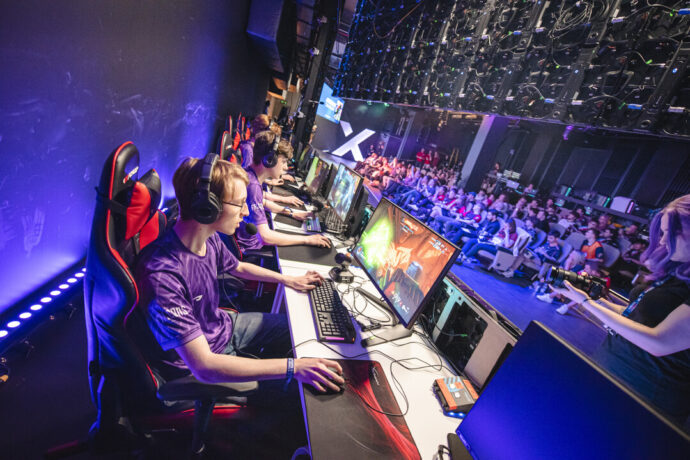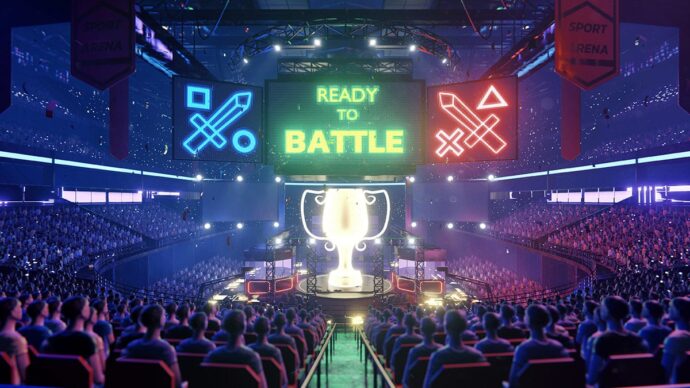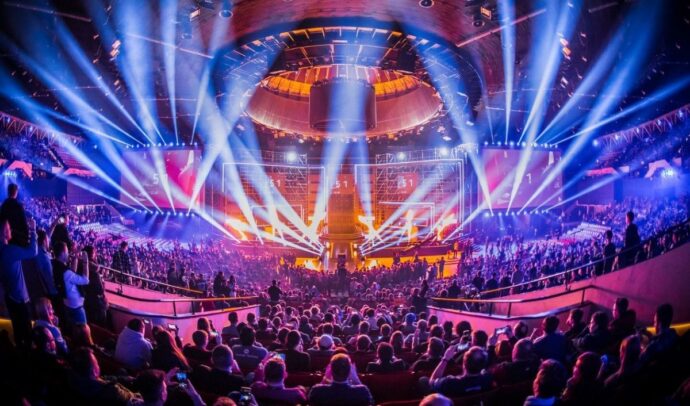In the vast realm of sports, a new player has emerged, challenging traditional notions and captivating millions of fans worldwide. eSports, the competitive world of video gaming, has evolved from niche pastime to a global phenomenon, redefining the landscape of sports and entertainment. In this odyssey, we embark on a journey to unravel the intricate competitive tapestry that makes gaming tournaments a thrilling spectacle.
The Genesis of eSports
1. The Birth of Competitive Gaming
The roots of eSports trace back to the early days of video slot gaming when arcade games dominated the entertainment scene. Pioneering titles like Pong and Space Invaders laid the groundwork for the competitive spirit that would define eSports in the years to come.
2. The Rise of LAN Parties
As personal computers became more accessible, LAN (Local Area Network) parties emerged, where friends gathered to connect their computers and engage in multiplayer battles. These grassroots events were the breeding grounds for the competitive camaraderie that forms the foundation of eSports.
The Evolution of eSports Tournaments

Source: linkedin.com
1. From Living Rooms to Stadiums
As technology advanced, so did the scale of eSports tournaments. What once took place in small LAN parties began filling arenas and stadiums, turning digital competitions into massive live events. The shift from intimate gatherings to grand spectacles marked a turning point, amplifying the audience’s connection to the gaming community.
2. The Birth of Major Leagues
Major leagues, such as the League of Legends Championship Series (LCS) and The International (Dota 2), emerged, providing a structured framework for professional players and teams to compete. These leagues mirrored the traditional sports format, with regular seasons, playoffs, and grand championships.
3. The International Appeal
One of the driving forces behind the global appeal of eSports is the accessibility provided by online streaming platforms. Tournaments are broadcasted live, allowing fans worldwide to witness the action in real-time. The convenience of online platforms like Twitch and YouTube has transformed eSports into a global spectacle, transcending geographical boundaries.
The Games: Pillars of eSports

1. League of Legends: A Titan Among Titans
League of Legends (LoL) stands as a titan in the eSports realm, boasting an enormous player base and a dedicated fan following. The game’s strategic depth and constant updates keep the competitive scene dynamic, making LoL tournaments some of the most anticipated events in the eSports calendar.
2. Dota 2: The Battle for The Aegis
Dota 2, with its intricate gameplay mechanics and high-stakes competition, hosts The International, an annual tournament with a prize pool that surpasses many traditional sports championships. The battle for The Aegis has become a cultural phenomenon, attracting players and viewers alike from all corners of the globe.
3. Counter-Strike: Global Offensive (CS:GO): Tactical Brilliance
CS:GO, with its emphasis on tactical gameplay and team coordination, has carved its niche in the eSports landscape. The game’s popularity extends beyond professional play, as it remains a favorite among casual gamers and competitive enthusiasts alike.
4. Fortnite: The Cultural Phenomenon
Fortnite, with its unique blend of battle royale gameplay and building mechanics, has transcended the gaming world to become a cultural phenomenon. Its eSports scene, marked by massive prize pools and celebrity tournaments, showcases the game’s widespread appeal.
The Players: Heroes of the Digital Arena
1. The Rise of eSports Athletes
eSports athletes, once considered outliers, are now hailed as legitimate sports stars. The dedication, skill, and strategic prowess exhibited by these players rival those of traditional athletes, earning them a place in the pantheon of sporting legends.
2. The Celebrity Factor
The rise of celebrities has added a new layer to the gaming subculture. Streamers and professional players become influencers, shaping trends and amplifying the connection between fans and the gaming community.
3. The Mental and Physical Rigors
Contrary to stereotypes, eSports demand rigorous mental and physical conditioning. Reaction times, strategic thinking, and endurance are essential elements of a successful career. Many professional players adhere to strict training regimens and wellness routines to stay at the top of their game.
The Business of eSports

Source: fullsail.edu
1. Sponsorships and Endorsements
As eSports gained mainstream attention, sponsorships and endorsements flooded the industry. Major companies, ranging from tech giants to energy drink manufacturers, recognize the marketing potential in aligning their brand with the eSports phenomenon.
2. Media Rights and Broadcasting Deals
The increasing viewership of eSports has attracted media giants to secure broadcasting rights. Traditional sports networks, streaming platforms, and even mainstream television channels now feature live coverage of major eSports events, further solidifying gaming’s position in the entertainment landscape.
3. The Merchandising Boom
Just like traditional sports, eSports has witnessed a surge in merchandising. Team jerseys, player-branded peripherals, and collectibles contribute to a booming market, allowing fans to showcase their allegiance to their favorite teams and players.
The Challenges and Controversies

Source: linkedin.com
1. Performance-Enhancing Controversies
Just like in traditional sports, eSports has faced controversies related to performance-enhancing substances. The debate over the use of substances to enhance focus and reaction times raises questions about fair play and player well-being.
2. Inclusivity and Diversity
While the eSports community continues to grow, concerns about inclusivity and diversity persist. Efforts are underway to break down barriers and create a more inclusive environment, ensuring that everyone, regardless of gender, ethnicity, or background, feels welcome in the gaming community.
3. Balancing Passion and Burnout
The intense training and competitive nature of eSports can lead to burnout among players. Striking a balance between passion and mental well-being remains a challenge, prompting organizations to implement measures to safeguard the health and longevity of their players’ careers.
The Future of eSports
1. The Spectacle Continues to Grow
As technology advances and the eSports ecosystem matures, the spectacle of gaming competitions will likely continue to grow. Virtual and augmented reality technologies may further immerse audiences in the gaming experience, blurring the lines between reality and the digital arena.
2. Integration with Traditional Sports
The boundary between eSports and traditional sports is becoming increasingly porous. Leagues and teams affiliated with traditional sports franchises are investing in eSports, creating synergies between the two worlds. This integration opens new avenues for collaboration and cross-promotion.
3. The Next Generation of Games and Players

Source: grapevinebirmingham.com
The continuous evolution of video games and the emergence of new talent ensure that eSports will remain a dynamic and ever-changing landscape. The next generation of games, players, and technologies will shape the future of eSports, captivating audiences and breaking new ground in the world of competitive gaming.
Conclusion
In this odyssey, we’ve explored the genesis, evolution, and challenges of the competitive gaming world. From the grassroots beginnings of LAN parties to the grandeur of major leagues, gaming has transformed into a global phenomenon, captivating audiences and challenging traditional notions of sports and entertainment.
As eSports continues to push boundaries, one thing is certain – the tapestry of competitive gaming will only become more intricate, weaving together technology, passion, and a global community united by the love of play. The odyssey of eSports is far from over; it’s a journey into the future, where the next level of competition awaits.




